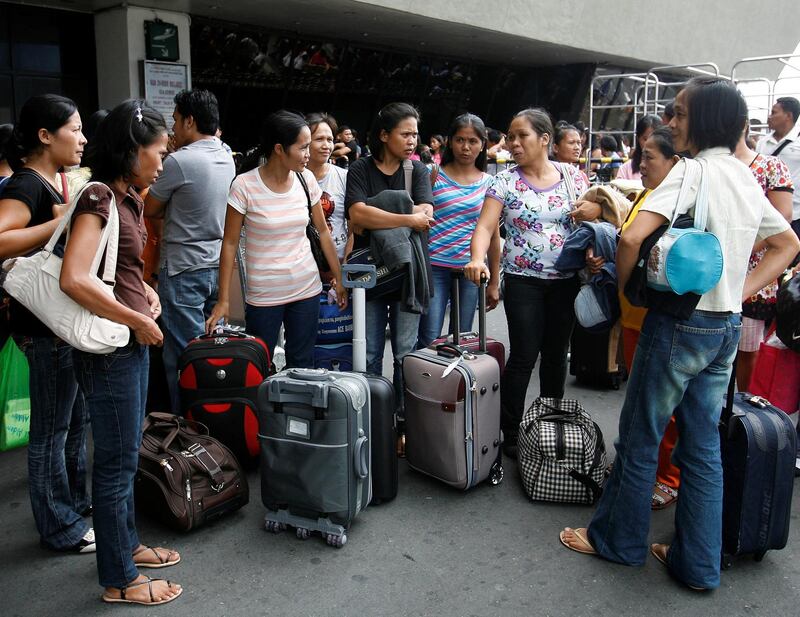The Philippines is reimposing a ban on its citizens going to work in Kuwait after a Filipina was allegedly killed by her employer, echoing a 2018 row between the two countries.
President Rodrigo Duterte approved the ban as his government accused the emirate of covering up the killing of a maid, one of about 240,000 Filipinos working in the Gulf state.
According to local media reports, the Philippine Overseas Employment Administration had earlier imposed a ban only on newly hired domestic workers travelling to Kuwait after the death of last month of Jeanelyn Villavende, 26.
An embalming certificate issued by Kuwaiti health authorities said she had died from "acute failure of heart and respiration" as a result of shock and multiple injuries in the vascular nervous system. But an autopsy conducted in Manila by the National Bureau of Investigation concluded that the body also bore signs of sexual assault.
"The result of the [Philippine] re-autopsy... indicates that overseas Filipino worker Jeanelyn Villavende was sexually abused," Mr Duterte's spokesman Salvador Panelo said in a statement announcing the ban on Friday.
The labour department said in a separate statement that the ban covered all Filipinos going to work in Kuwait, although skilled workers and professionals with current contracts were exempted.
Domestic workers already in Kuwait will be allowed to finish their contracts.
Millions of Filipinos work abroad and their remittances account for about 10 per cent of the Philippine economy.
Mr Duterte's government briefly banned Filipinos going to work in Kuwait two years ago amid a diplomatic row that began with the discovery of the remains of a murdered Filipina maid in her employers' freezer.
Mr Panelo said the latest ban would only be lifted once Kuwait agreed to fully implement the terms of an agreement signed after the 2018 ban that offered security guarantees for Filipino workers.
At the height of the previous ban Mr Duterte alleged that Arab employers routinely raped Filipina workers, forced them to work long hours and fed them scraps.
His government then ordered its embassy staff in Kuwait to help Filipina maids flee allegedly abusive bosses, prompting the emirate to expel the Filipino ambassador.
The ban was lifted three months later after the two governments thrashed out the labour agreement and Mr Duterte made a public apology to the Kuwaiti government.







